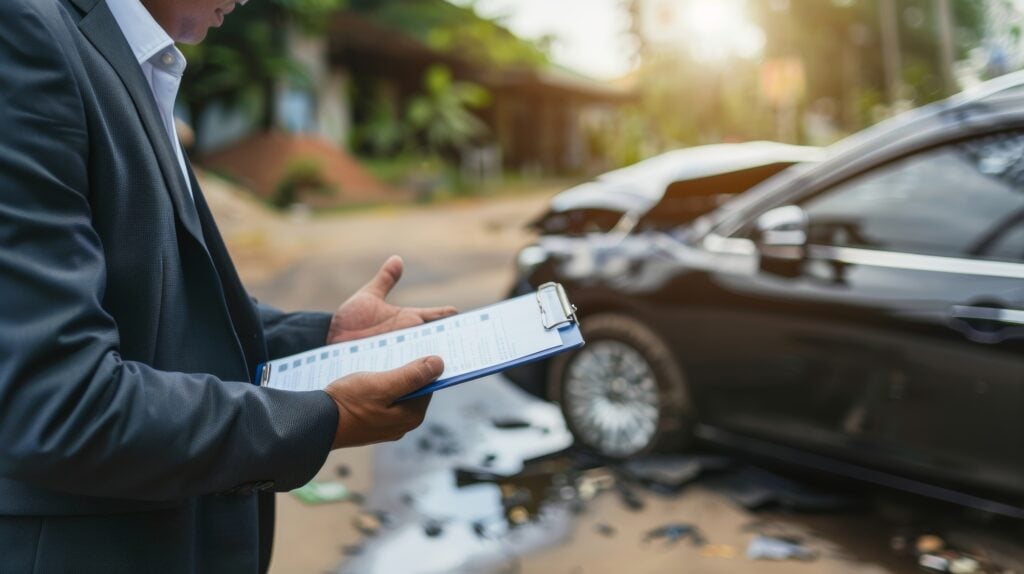Florida Car Accidents and Medicare/Medicaid Liens
If you’ve been injured in a Florida car accident and receive Medicare or Medicaid benefits, your injury settlement may not go directly into your pocket—at least not all of it. Federal and state agencies may assert a legal claim, known as a lien, to recover the costs of your medical treatment. This process can significantly affect how much money you ultimately receive, and if you don’t handle it properly, you may end up facing penalties or repayment demands down the road.
This guide explains everything you need to know about Medicare and Medicaid liens in Florida personal injury settlements—how they work, when they apply, how to resolve them, and how a qualified attorney can help you keep more of your recovery.
What Are Medicare and Medicaid Liens?
A lien is a legal right to claim money from a settlement or judgment. When a government healthcare program like Medicare or Medicaid pays for your accident-related treatment, it has the right to be reimbursed from your injury settlement.
Medicare Liens: Federal Reimbursement Rights
Medicare liens are regulated under the Medicare Secondary Payer Act (MSP Act). Medicare is considered a “secondary payer” when another party (like the at-fault driver or their insurance company) is responsible for your injuries. If Medicare pays for treatment that should have been covered by that party, they expect reimbursement.
Medicaid Liens: Florida’s Recovery Rules
Medicaid liens are governed by Florida’s Medicaid third-party liability laws. Medicaid can assert a claim against your settlement to recover any costs they paid related to the injury. These claims are typically handled by the Florida Agency for Health Care Administration (AHCA).
Why These Liens Matter
It’s important to understand that these programs don’t just ask nicely for the money back—they are legally entitled to it. Failing to satisfy a Medicare or Medicaid lien can result in legal and financial consequences.
When Do Medicare and Medicaid Assert Liens in Florida?
Government programs assert liens when they believe they’ve paid for treatment related to an accident caused by someone else.
Medicare: CMS and the Conditional Payment Process
Medicare does this through the Centers for Medicare & Medicaid Services (CMS). The process begins when you or your attorney report the injury claim to CMS. CMS will send a Conditional Payment Letter—a document that lists all the payments Medicare made on your behalf.
Medicaid: Automatic Notice to Florida’s Recovery Program
Florida’s Medicaid system automatically receives notice when it is billed for accident-related treatment. Florida’s Medicaid Recovery Program will send out a lien notice to your attorney or directly to you. This lien outlines what the state believes it is owed.
Settlements Are Not Fully Yours Until Liens Are Resolved
These liens can be substantial and often surprise injury victims. Many people do not realize that receiving government health benefits comes with the obligation to reimburse the program from any third-party recovery.
How to Handle a Medicare Lien After a Car Accident
Managing a Medicare lien is a step-by-step process that requires precision, timing, and often legal support.
Step 1: Report the Case to CMS
Your attorney (or you, if unrepresented) must report your case to CMS through the Medicare Secondary Payer Recovery Portal (MSPRP). This opens a file for the lien process.
Step 2: Receive the Conditional Payment Letter
CMS sends a Conditional Payment Letter, which outlines all the payments Medicare has made on your behalf that it believes are related to your car accident.
Step 3: Dispute Unrelated Charges
You can and should review the charges. If any items listed are unrelated to the crash, your attorney can challenge them with supporting documentation.
Step 4: Report the Settlement Amount
Once your case settles, your attorney must report the settlement amount to CMS. This includes a breakdown of legal fees and other costs, as Medicare considers these when calculating the final lien.
Step 5: Final Demand Letter Issued
CMS will send a Final Demand Letter showing the amount they expect to be reimbursed. This amount takes into account legal fees and may be less than the total listed in the Conditional Payment Letter.
Step 6: Pay the Lien Within 60 Days
Failure to pay within 60 days can result in interest charges and collection action. Once paid, CMS issues a confirmation that the lien has been satisfied.
How to Resolve a Medicaid Lien in a Florida Auto Accident Case
The Medicaid lien resolution process in Florida is governed by different rules than Medicare and requires dealing directly with state agencies.
Medicaid Will Notify You or Your Lawyer
When Medicaid pays for any accident-related medical treatment, the state’s Medicaid recovery unit will place a lien on your case. You or your attorney will receive notice of the lien amount.
Itemized Statements Are Available Upon Request
You have the right to request an itemized list of Medicaid-paid services. This allows your attorney to review and determine whether all charges are valid and accident-related.
Settlement Reporting Is Required
Once your case settles, the final amount of recovery and a breakdown of legal fees and expenses must be submitted to AHCA. This enables Medicaid to calculate their portion.
Negotiation May Reduce What You Owe
In some cases, your attorney can argue for a reduced lien if:
- The lien exceeds the portion of the settlement related to medical expenses.
- The total recovery is small relative to your total damages.
- The repayment would result in undue financial hardship.
The Role of Your Attorney in Lien Negotiation
Attorneys play a critical role in ensuring that Medicare and Medicaid liens are handled correctly—and that you don’t overpay.
Legal Expertise Is Crucial
Lien laws are complex, and CMS and AHCA are not flexible about deadlines or documentation errors. A personal injury attorney ensures the process is legally compliant.
Dispute and Reduction Negotiations
Attorneys are often successful in:
- Disputing unrelated medical expenses
- Applying for hardship waivers
- Arguing that legal fees should reduce the government’s recovery
Ensuring Timely Payment
An experienced attorney also ensures that the lien is paid within the required time frame, avoiding penalties and delays in receiving your settlement funds.
What Happens If You Ignore a Medicare or Medicaid Lien?
Ignoring a lien, whether from Medicare or Medicaid, is not just unwise—it can lead to serious legal and financial consequences.
Medicare Will Enforce the Debt
If a Medicare lien isn’t paid:
- CMS can send the debt to the U.S. Department of the Treasury for collection.
- You may be charged daily interest on the unpaid balance.
- Your future Medicare benefits could be affected.
Medicaid Has Legal Enforcement Power
If you don’t pay a Medicaid lien in Florida:
- The state may initiate collection actions.
- You could lose Medicaid eligibility for future care.
- Your attorney may face liability for distributing funds improperly.
Tips to Protect Your Injury Settlement
- Inform your attorney immediately if you receive Medicare or Medicaid.
- Respond to letters from CMS or AHCA without delay.
- Keep copies of all medical bills, claim letters, and payment notices.
- Ask your attorney to request itemized lien documentation.
- Make sure your lien is resolved before final settlement disbursement.
Frequently Asked Questions About Medicare and Medicaid Liens in Florida Injury Cases
Do I have to repay Medicare after a car accident in Florida?
Yes, you are required by federal law to repay Medicare if it covered any medical expenses related to your car accident. Medicare is considered a secondary payer, which means that if another party is responsible for your injuries—such as another driver or an insurance company—Medicare expects to be reimbursed once you receive compensation through a settlement or court award. This is enforced through the Medicare Secondary Payer Act, and failing to repay can lead to interest charges and even collections through the U.S. Treasury.
Can Medicaid take part of my personal injury settlement in Florida?
Yes, Medicaid can assert a lien against your settlement for reimbursement of medical costs they covered due to your accident. Florida law allows the state to recover only the portion of the settlement that is specifically allocated to medical expenses, not for pain and suffering, lost wages, or other damages. However, it’s important to note that Medicaid’s claim must be addressed before you receive your portion of the settlement. If you fail to resolve it, the state may take legal action to recover what it is owed.
Will my lawyer take care of resolving the Medicare or Medicaid lien?
In most cases, yes. A personal injury attorney experienced in handling Medicare and Medicaid liens will typically include lien resolution as part of their legal services. Your lawyer should handle communications with CMS or the Florida Medicaid recovery unit, submit documentation, dispute unrelated charges, and negotiate for reductions if applicable. It’s essential to discuss this upfront to ensure your attorney is prepared to address lien issues early in the case.
What happens if I ignore a Medicaid or Medicare lien after my settlement?
Ignoring a lien can result in serious consequences. For Medicare, CMS may charge interest, refer the debt to the Department of Treasury for collection, or take legal action. In some cases, future Medicare benefits can be impacted. For Medicaid, the state may suspend your eligibility for services, initiate lawsuits to recover funds, or even place liens on other assets. In addition, your attorney could face liability if they distribute your settlement without satisfying the lien.
Can the amount I owe to Medicare or Medicaid be reduced?
Yes, in many cases, the lien amount can be reduced. Attorneys may negotiate with CMS to eliminate charges unrelated to the accident or reduce the amount based on a portion of the settlement being allocated to attorney fees. Medicaid liens may also be reduced through negotiation, especially if full repayment would cause financial hardship or the settlement is limited. Florida courts and federal guidelines provide some flexibility, but the key is having an experienced lawyer advocate on your behalf.
Final Thoughts: Protect What You Deserve
Medicare and Medicaid liens can take a significant bite out of your personal injury settlement if they are not addressed early and correctly. Fortunately, the law provides options for negotiation and reduction, and a qualified attorney can help ensure your rights are protected throughout the process.
The key to success is early awareness, proactive legal action, and careful compliance with Medicare and Medicaid rules.
Contact Lawlor, White & Murphey Today
If you’re involved in a car accident and receive Medicare or Medicaid, don’t leave money on the table—or put yourself at legal risk. Contact us today for a free consultation and let our skilled attorney handle the complexity of lien resolution—so you can focus on healing and moving forward.

